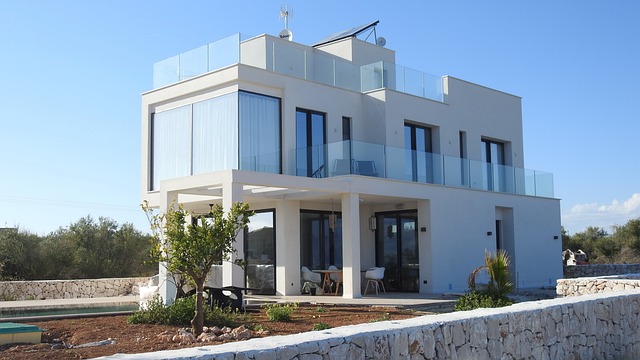Entrepreneurs and businesses in Singapore's electronics sector have a wealth of financial support options, including the Electronics Industry Transformation Map (EITM) under the Economic Development Board (EDB), which provides schemes like the Enterprise Financing Scheme (EFS). This scheme offers various loans and guarantees to meet diverse capital needs across all company sizes. Additionally, the Monetary Authority of Singapore (MAS) and Spring Singapore offer a range of financing solutions for small and medium-sized enterprises (SMEs), including grants, loans, and loan insurance. The Developmental and Commercialization Grant (DCG) under EITM is another significant grant aimed at product development, enhancing existing products, and adopting new technologies within the electronics sector. For startups and small businesses, venture debt, mezzanine finance, and microloans are available alongside traditional equity funding, all designed to support companies at different stages. The Executive Condominiums (ECs) in Singapore provide a middle ground between HDB flats and private condominiums for first-time homeowners. To be eligible for an EC, applicants must meet the Housing & Development Board (HDB) criteria, including being first-timer flat owners, not owning a private property in the last 30 months, and consisting of at least two Singaporean citizens with one member above 21 years old. Prospective buyers must also comply with Total Debt Servicing Ratio (TDSR) and Mortgage Serving Ratio (MSR) frameworks and not exceed the household income ceiling set by the HDB, which is subject to change. Financing ECs can be done through bank loans and mortgages tailored to various financial situations, with specialized loan packages available from banks in Singapore. These loans are designed with terms that consider buyers' diverse financial capabilities, making EC ownership a viable option for many. It's important for potential buyers to assess their finances and monitor interest rates to select the most advantageous loan package. The government initiative encompasses the Central Provident Fund (CPF) Housing Grants, which significantly assist first-time homebuyers in purchasing ECs through grants like Basic, Additional, and Proximity Grants. With the abundance of available ECs and diverse mortgage products, along with the supportive financial schemes for businesses, Singapore offers sustainable living solutions and investment opportunities for its residents.
navigating the path to homeownership in Singapore, prospective buyers eyeing Executive Condominiums (ECs) have a wealth of financing options at their disposal. This comprehensive guide delves into the multifaceted world of EC financing, outlining the eligibility criteria for ECs, the advantages of CPF Housing Grants, the role of bank loans and mortgages, and the support provided by government financial schemes. Whether you’re a first-time homebuyer or a second-timer, understanding the available EC options in Singapore is pivotal to securing your dream home with financial prudence. This article breaks down each aspect, from the CPF Housing Grant scheme’s benefits to the intricacies of bank loan packages and government initiatives designed to facilitate EC ownership. With careful planning and a clear grasp of the financial landscape, purchasing an EC can be a rewarding step towards achieving property independence.
- Overview of EC Financing Options in Singapore
- – Eligibility Criteria for Executive Condominiums (ECs)
- – Introduction to CPF Housing Grants and Their Benefits
- – The Role of Bank Loans and Mortgages in EC Purchases
Overview of EC Financing Options in Singapore

In Singapore, entrepreneurs and companies looking to finance their expansion or venture into the electronics sector can explore a range of financing options tailored to their needs. The Electronics Industry Transformation Map (EITM) under the Economic Development Board (EDB) offers support through various schemes and grants. These include the Enterprise Financing Scheme (EFS), which provides loans and guarantees for local enterprises, and the Enterprise Development Grant (EDG), designed to offset project costs in market expansion, innovation, and manpower development. The EFS is particularly beneficial as it encompasses a broad spectrum of financial assistance, ensuring that businesses with different capital requirements can find suitable support. Additionally, the Monetary Authority of Singapore (MAS) and Spring Singapore work in tandem to facilitate financing through grants, loans, and loan insurance. These entities provide accessible funding options for small and medium-sized enterprises (SMEs) within the electronics cluster, making available EC financing in Singapore that catalyzes growth and technological advancement in the industry.
Furthermore, the Developmental and Commercialization Grant (DCG), another crucial component of the EITM, aids companies in developing new products, enhancing existing ones, or adopting new technologies. This grant is specifically aimed at supporting projects that can lead to significant business growth and innovation within the electronics sector. The financing landscape in Singapore is designed to be inclusive, with a variety of options such as venture debt, mezzanine finance, and microloans available for startups and small businesses. These financial instruments are structured to complement equity funding and facilitate smoother operations for companies at various stages of development. Entrepreneurs seeking to tap into these resources can benefit from the guidance of Singapore’s Enterprise Development Centre (EDC), which provides advisory services to help navigate the different financing paths available, thereby ensuring that businesses can secure the necessary capital to thrive in Singapore’s dynamic electronics industry.
– Eligibility Criteria for Executive Condominiums (ECs)

Prospective homeowners in Singapore interested in Executive Condominiums (ECs) should be well-versed with the eligibility criteria set forth by the Housing & Development Board (HDB). To qualify for an EC, applicants must meet the following conditions: they should be first-timer flat owners, which includes individuals who have previously taken an HDB flat or EC. They must also not currently own or have disposed of a private residential property within the past 30 months. Additionally, families must comprise at least two Singapore citizens, with at least one being above 21 years of age at the time of application. Couples are also subject to the Total Debt Servicing Ratio (TDSR) and Mortgage Servicing Ratio (MSR) regulations, ensuring they can manage their finances effectively.
Financial eligibility for an EC is assessed based on the household income ceiling, which is regularly updated by the CPF Board. Applicants must earn a monthly income not exceeding $14,000 at the time of application, with certain considerations for family nucleus size. Those who meet these criteria can explore the range of available ECs in Singapore, which offer a balance between the affordability of HDB flats and the facilities and amenities found in private condominiums. Prospective buyers should also be mindful of the monthly household income ceiling as it is a dynamic figure subject to changes that could affect eligibility.
– Introduction to CPF Housing Grants and Their Benefits

Singapore’s Central Provident Fund (CPF) Housing Grants represent a significant avenue for financial assistance for individuals looking to purchase their first HDB flat or executive condominium (EC). These grants are part of the broader efforts by the Singapore government to make housing more affordable, especially for lower and middle-income families. There are various types of CPF Housing Grants available, such as the Basic Grant, Additional Grant, and Proximity Grant, each designed to address different aspects of affordability related to the buyer’s income level and desired location. For instance, the Basic Grant is intended for first-timer applicants, while the Additional Grant caters to those with lower incomes. The Proximity Grant, on the other hand, provides additional assistance for couples who wish to live closer to their parents or children. By leveraging these grants, eligible Singaporeans can significantly reduce the upfront costs associated with purchasing an EC, facilitating home ownership and financial stability.
Prospective homeowners in Singapore looking to utilize their CPF savings to finance an EC will find that the CPF Housing Grants complement the existing suite of housing grants and schemes available under the public housing program. These grants not only enhance affordability but also offer a structured pathway towards homeownership, which is a key component of wealth accumulation for many Singaporeans. The combination of these financial incentives with the range of ECs available in Singapore ensures that prospective buyers have multiple options to find a home that fits their budget while still enjoying the modern amenities and lifestyle that ECs offer. This comprehensive approach to EC financing is indicative of the government’s commitment to supporting citizens in achieving sustainable living without compromising on quality and convenience.
– The Role of Bank Loans and Mortgages in EC Purchases

In Singapore, Extraordinary Condominiums (ECs) offer a unique blend of residential and commercial living spaces that cater to a diverse array of needs. A key financial instrument in accessing these properties is through bank loans and mortgages. These financing options are pivotal for individuals looking to purchase ECs as they are not available outright to most buyers. Banks in Singapore typically offer competitive loan packages tailored specifically for EC purchases, which can be leveraged by potential homeowners to fulfil their aspirations of owning a piece of this modern living concept. The terms and conditions of these loans are crafted to accommodate the varying financial capabilities of applicants, ensuring that a wide range of buyers can consider an EC as a viable housing option. Prospective buyers must assess their finances and the prevailing interest rates to determine the most suitable loan package, which often includes options for fixed or floating interest rates. This careful consideration is crucial in navigating the long-term financial commitment associated with an EC mortgage.
Furthermore, the process of securing a bank loan for an EC involves a thorough evaluation of the borrower’s financial status and repayment capacity. Lenders will take into account factors such as income, employment stability, and existing financial obligations to ensure responsible lending practices. The availability of ECs in Singapore, coupled with the diverse mortgage products from banks, presents a robust opportunity for first-time homeowners and families alike to step into a new chapter of their lives with a sustainable financial plan. It is imperative for potential EC buyers to engage with multiple financial institutions to compare loan terms and interest rates, thereby securing the most favorable financing option for their EC purchase.



